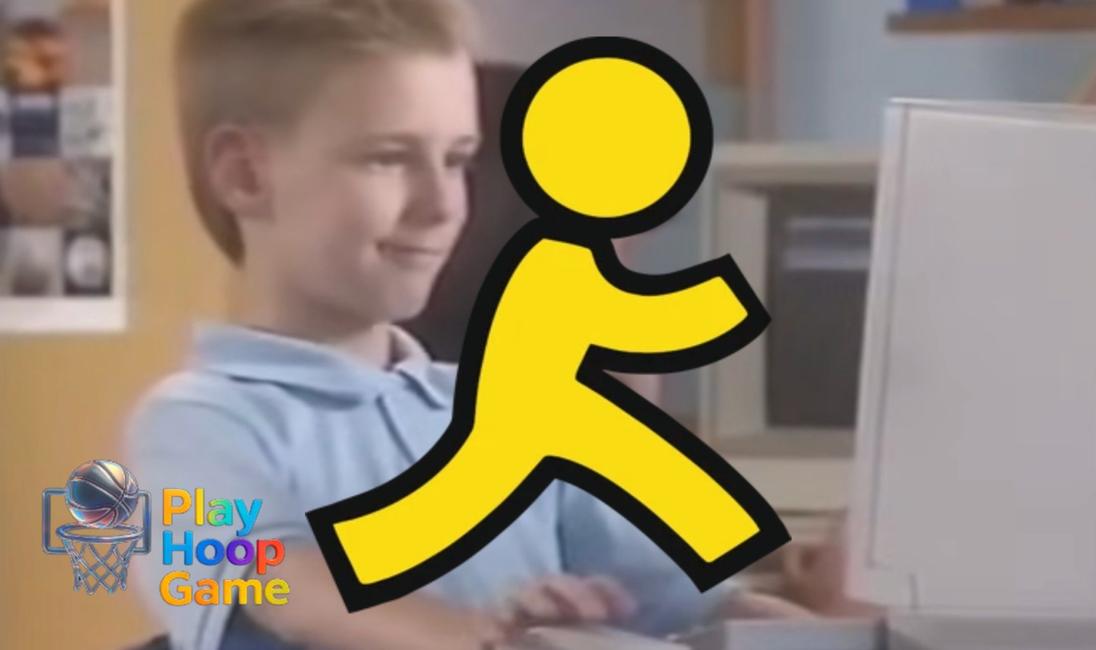Do you remember the sound?
I do. It’s seared into my brain like a childhood phone number. That initial, hopeful chirp of the handshake, followed by a symphony of digital screeching. Pshhhkkkkkkrrrrkakingkakingkakingtshchchchchchchchcch’ding’ding’ding. It was the sound of a gateway opening. A portal to another world, painstakingly carved out of your family’s only phone line.
For a solid decade, that was the sound of the future. It was the sound of America Online.
And now, it’s going silent. AOL (or what’s left of it) recently announced the final shutdown of its dial-up services. It’s a move that feels both ridiculously overdue and strangely poignant. It’s like hearing they’ve finally dismantled the last Roman aqueduct still in use in some forgotten provincial town. It wasn’t just a service ending; it was the last echo of an empire fading into history.
“You’ve Got Mail” Was More Than a Notification; It Was a Kingdom’s Anthem
It’s hard to explain to someone who grew up with ubiquitous Wi-Fi just how completely AOL dominated the digital landscape of the 90s. It wasn’t on the internet. For millions of us, it was the internet.
Those ubiquitous CDs—used as coasters, frisbees, and occasionally, for their intended purpose—were like passports. They offered entry into a carefully curated kingdom. A digital walled garden where everything was safe, labeled, and easy to find. You had your mail, your chat rooms (the wild, wild west of A/S/L?), your news, your weather. All under the friendly blue triangle logo.
It was an empire built on accessibility. It took the terrifyingly complex idea of the “information superhighway” and put up guardrails, friendly rest stops, and a tour guide who spoke in a cheerful, digitized voice. It felt permanent. Unassailable. The idea that something could replace AOL felt as absurd as suggesting we’d all one day carry tiny glass slabs in our pockets that held all of human knowledge.
And let's be honest, those early days were magical. The discovery of a chat room dedicated to your favorite obscure band. The thrill of getting a reply from a stranger in another state. Even the primitive games felt like a peek into a new dimension of entertainment, a far cry from the complex, engaging browser titles you can find just by checking what's trending today.
The Barbarians at the Broadband Gate
But no empire lasts forever. And AOL’s walls, once its greatest strength, quickly became its fatal weakness.
The barbarians, in this case, didn’t carry swords. They carried coaxial cables and DSL modems. They brought with them a new gospel: “Always On.”
I remember the first time I used a friend’s cable internet connection. It was… instantaneous. No screeching symphony. No tying up the phone line. No per-hour charges to worry about. The web just was. You clicked, and it appeared. It felt like witchcraft.
Suddenly, AOL’s curated garden felt less like a paradise and more like a beautifully maintained prison. Why stay in the pleasant but small courtyard when a whole chaotic, sprawling, and infinitely more interesting world was just outside the gate? The open web was messy, unpredictable, and full of weird, wonderful, and sometimes terrible things. But it was free. Not free of cost, but free in spirit.
The kingdom’s citizens started tunneling under the walls. They discovered Google. They found message boards and early blogs. The carefully constructed paths laid by AOL were abandoned for the dusty, untamed trails of the wider internet. The empire was losing its people, not to a rival king, but to the promise of boundless territory.
The Inevitable Fall: Why the AOL Dial-Up Ending Reminds Us That All Empires Collapse Eventually
This is the part that fascinates me. The AOL dial-up ending reminds us that all empires collapse eventually, and they almost always collapse for the same few reasons. AOL’s story is a perfect digital allegory for the fall of Rome.
What really sealed its fate? Arrogance. At the peak of its power in 2000, AOL made a disastrous move: it merged with Time Warner. It was a classic imperial blunder. They tried to buy the "old world" media empire to solidify their dominance, believing their new-world power was invincible. Instead of conquering, they were diluted. The cultures clashed, the vision blurred, and the behemoth company became too slow and unwieldy to react to the nimble barbarians at the gate.
They failed to adapt. They saw broadband not as the future, but as a threat to their existing business model. They were so invested in the tollbooths on their dial-up roads that they didn’t see everyone else was busy building free-to-roam superhighways all around them.
Wait, that's not quite right. It's more than just a failure to adapt. It's a failure of imagination. They couldn't imagine a world where their curated experience wasn't the most desirable product. They thought they were selling access, when what people really wanted was freedom.
And so you start to look around. You see today’s digital titans—Google, Meta, Amazon, Apple—and you can’t help but wonder. Where are their blind spots? What fundamental shift in technology or culture are they currently too big and too successful to see? The cracks are always there if you look closely enough.
So, What’s the Lesson Here?
The easy takeaway is "innovate or die," but that feels too much like a bland business school platitude. The real lesson is deeper, I think. It’s about the intoxicating, dangerous nature of dominance. Success breeds an inability to see the world differently.
AOL built a perfect solution for a specific moment in time. The problem is, time moves on. The dial-up sound is now a museum piece, a nostalgic meme. The concept of a walled-garden internet has been replaced by an endless buffet of content, from streaming services to vast libraries of free-to-play games on sites like CrazyGames. We went from a single kingdom to a sprawling, interconnected world of city-states, each vying for our attention.
I keep coming back to this point because it's crucial: AOL wasn’t killed by a better AOL. It was killed by a completely different idea of what the internet should be. Just as a simple game of clicking a button can evolve into a complex strategy title like Kingdom Fight, the internet itself evolved beyond AOL’s wildest dreams.
The silence of that last dial-up modem isn’t a tragedy. It’s just the turning of a page. A quiet, necessary death that makes room for whatever comes next. And the cycle will continue, because no empire, digital or otherwise, is ever truly built to last.
FAQs: Your Questions About the Ghost of Internet Past
Wait, AOL dial-up was still a thing until recently?
It’s shocking, but yes! For a very small number of people in rural or underserved areas, dial-up was still the only, albeit painfully slow, option. This final shutdown marks the true end of an era, closing the book on a service that was, for decades, a household name.
Why couldn't AOL just switch to broadband and stay dominant?
They tried, but it was too little, too late. Their entire business model and infrastructure were built around the dial-up "walled garden." Shifting to broadband meant competing with agile internet service providers (ISPs) on their turf. The disastrous Time Warner merger also crippled their ability to pivot effectively. They were an empire of toll roads trying to compete in a world of free highways.
What was the AOL "walled garden" and why did people like it?
Think of it like a curated theme park. Inside the AOL application, you had everything: email, chat, news, games, all vetted and presented by AOL. For newcomers to the internet, this was fantastic. It was safe, non-technical, and easy to navigate. You couldn't get lost or stumble upon the internet's stranger corners. It was comfort and simplicity in a new, intimidating digital world.
Is there a modern equivalent to AOL today?
Not in the same all-encompassing way. However, some argue that platforms like Facebook (Meta) act as a sort of modern walled garden. They try to keep you within their ecosystem—with Messenger, Marketplace, news feeds, and video—for as long as possible. The principle is the same: create a sticky, all-in-one environment. The difference is, today, the gate is much, much easier to open.
Does the AOL dial-up ending really prove that all empires collapse eventually?
In a metaphorical sense, absolutely. AOL's journey from total dominance to nostalgic relic is a powerful case study. The AOL dial-up ending reminds us that all empires collapse eventually because it highlights the universal vulnerabilities: resistance to change, the arrogance of success, and failing to understand what your people—or customers—truly want next. What was once the center of the world is now a footnote, a lesson every current tech giant should remember.

























